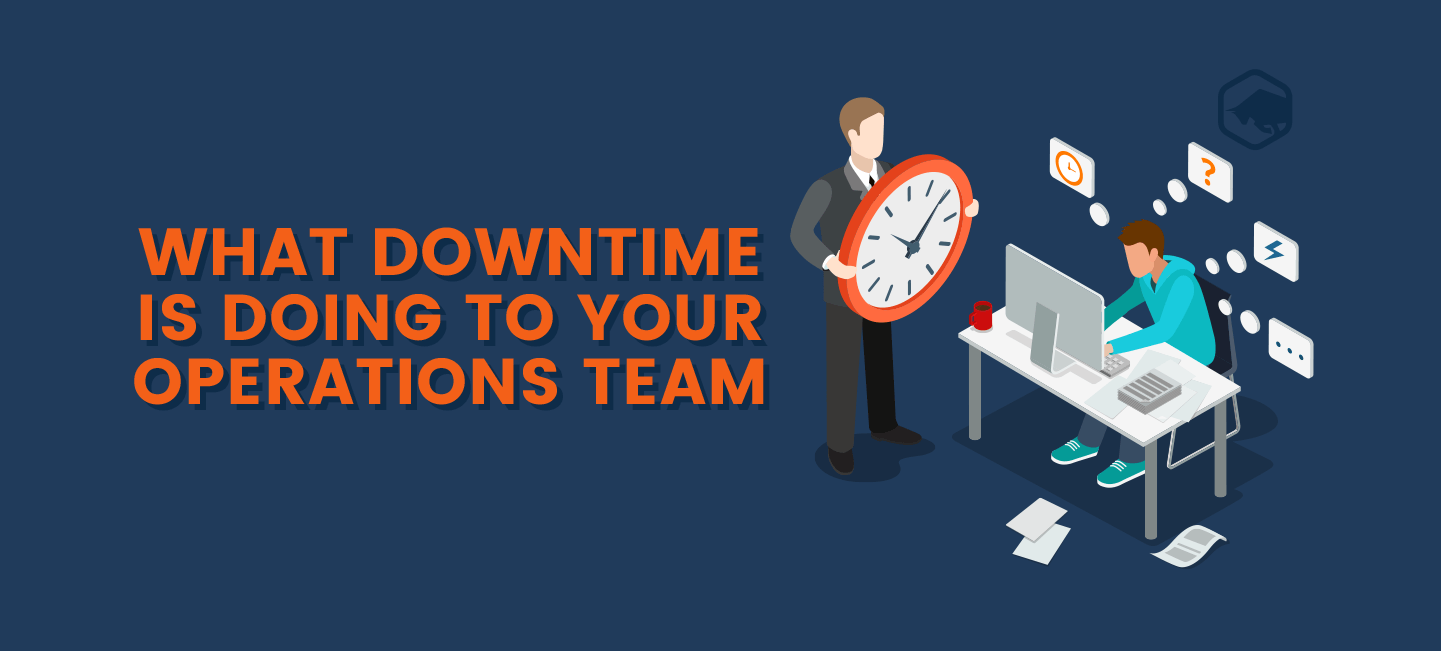The third part in our series on how downtime kills business, we explore how service interruptions are reducing your operations team's effectiveness and lowering the overall quality of your organization's services.
Developers and operations people are sometimes at odds with each other. That's why DevOps has become a "thing." Putting dev and ops in the same methodology is as intuitive as the need for AWS monitoring tools and helps the two practices work together. This is especially true when it comes to solving downtime.
Regardless of issue type, operational downtime can occur at any time. While the majority of the 625 business professionals responding to a recent industry poll have some sort of data protection and recovery plan in place, they don’t have a ready solution for what they identified as their top three concerns associated with operational downtime:
- Idle employees during outages
- Seamless customer satisfaction
- Excess labor costs attributed to “catch up” activities
To put the impact of these concerns into perspective, the same industry study asked respondents to quantify how much actual time downtime incidents cause:
- 54% report that at least three incidents occurred in the past 12 months
- 61% cited an average of two to six hours per downtime incident
- 52% estimate that downtime incidents lasting up to six hours have an almost immediate negative impact on their business
Track Downtime Carefully
It will be hard to do anything to prevent downtime when you don’t even know when or how downtime is happening. So the first step toward reducing unexpected software interruptions is carefully and accurately tracking what sort of downtime is occurring. Implement an automatic tracker that will detect downtime immediately and be able to alert you in real time to problems that have occurred. Then, figure out why each instance occurred. When you know that software errors are causing 70 percent of incidents, for example, you know what to prioritize in your efforts.
Invite Employee Input
Your operations team works on the front lines of your infrastructure, so it is to your benefit to get them on the same page with you in reducing downtime events. Explain the problem with downtime and how it affects profits, and invite input on ways to better report issues, boost productivity, etc. Involving your staff members in the decision process helps them feel more invested in your business and gives them an incentive to work toward the same goals.
Conduct Regular Evaluations and Set Specific Incentives
Most companies conduct regular performance reviews, but you can make yours more powerful by including a discussion of downtime. Set specific company goals — daily and quarterly — for reducing errors and improving productivity. Implement them into your sprints. Then, offer incentives to employees who reach those goals. Motivated ops personnel are much more productive employees, so offering real rewards benefits everybody, from the customer to the CEO.




